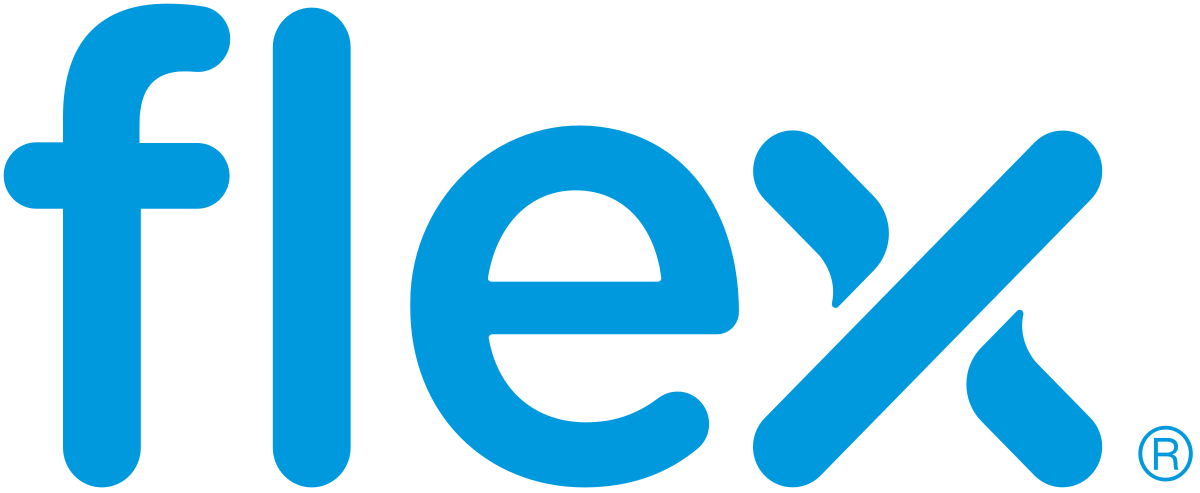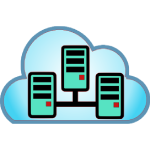Sorting
From A to Z
Deployments found: 1
Flex’s goal of “creating a smarter, more connected world” may sound straightforward. However, its business—delivering design, engineering, manufacturing, and supply-chain services across a dozen industries—is a bit more complicated. That’s why Flex is constantly looking to technology to empower its workforce and improve productivity while reducing the complexity inherent to its business.
This means enabling approximately 200,000 employees spread across more than 100 sites in 30 countries to collaborate seamlessly and securely. Employees must work not only from the office but also at home, on the road, in the field, and from whatever device (company-issued or personal) is close at hand.
The Silicon Valley-based organization is so serious about this, in fact, that it established a User Experience team to gather insights into what workers throughout the organization want from their corporate IT environment.
Those insights indicated that user expectations are high: Not only do they want “any-device access” to company resources, but they expect their experience to be consistent regardless of the endpoint device they’re using to access those apps and services. To meet these expectations without compromising security—and to facilitate a true bring-your-own-device (BYOD) environment—Flex turned to the mobile device management capabilities offered by the Citrix Endpoint Management (XenMobile) solution.
Increasing productivity and decreasing costs
Flex evaluated a range of remote-access solutions before settling on Citrix Endpoint Management (XenMobile) technology for its secure endpoint connectivity. The solution’s tight integration with Citrix Virtual Apps and Desktops (Citrix XenApp and Citrix XenDesktop) software, which the company uses to deliver virtualized applications and desktops, also factored into the decision.
For Armin Sturm, director of IT for client and endpoint services at Flex, the choice was easy: “Citrix was very supportive in helping us use XenMobile to connect our users’ mobile devices into the Flex network so that they could not just use our services but use them securely. This capability was key for our remote-access solution.”
Because the Citrix Endpoint Management (XenMobile) solution separates corporate apps and data from personal apps and data on users’ mobile devices, Flex employees can work securely whenever, wherever, and on whatever device is most convenient—a workplace change that has made productivity soar.
“At Flex, we try to enhance users’ experiences by asking them to do things once and in the easiest way possible,” says Oscar Meza, architect for mobility solutions at the company. “XenMobile makes that possible. Email is fully automated; access to internal resources is easy and instantaneous; and corporate apps can be accessed via the enterprise app store—all of which boost productivity.”
Best of all, these increases in productivity go hand in hand with the cost savings gained from reducing the number of corporate-issued devices as more and more workers opt to use their own.
Scaling to ensure customer success
It’s not all about internal users. As a “sketch-to-scale” company, Flex collaborates with customers and partners to develop products that meet specified design and manufacturing goals. It then scales production of those products for the global marketplace. Cloud technology accommodates this by allowing Flex to quickly increase and decrease resources as demand dictates.
That’s why when the company determined that hybrid cloud technology would be the path to the future, the Citrix Endpoint Management (XenMobile) solution was part of the equation as well. Says Meza, “Flex must adapt to whatever level solution our customers require. By being in the cloud, XenMobile enables this—allowing us to ramp up our teams and environment to whatever volume we need in terms of licensing and infrastructure so that we can provide innovative customer solutions at scale.”
Elevating IT to more than a cost center
For Meza and the rest of the Flex team, the biggest benefit of the Citrix Endpoint Management (XenMobile) solution may be its ability to augment the IT department’s role in the organization.
Says Meza, “Our Citrix solutions enable me to stop worrying about certain aspects of the infrastructure—such as maintenance and data center downtime—and instead focus on designing the solutions that our end users need. This has allowed IT to move away from its traditional role as a cost center and into a new one as a business driver.”
This vision of the evolving workplace—and the IT organization’s role in it—is one that Flex and Citrix share. “Flex and Citrix look to the future and see a very connected world,” says Sturm. “Everybody will have access. People will use the services provided to them. And end-user experience will change drastically. We’re positive that with our Citrix solutions, we can keep up with that future.”
This means enabling approximately 200,000 employees spread across more than 100 sites in 30 countries to collaborate seamlessly and securely. Employees must work not only from the office but also at home, on the road, in the field, and from whatever device (company-issued or personal) is close at hand.
The Silicon Valley-based organization is so serious about this, in fact, that it established a User Experience team to gather insights into what workers throughout the organization want from their corporate IT environment.
Those insights indicated that user expectations are high: Not only do they want “any-device access” to company resources, but they expect their experience to be consistent regardless of the endpoint device they’re using to access those apps and services. To meet these expectations without compromising security—and to facilitate a true bring-your-own-device (BYOD) environment—Flex turned to the mobile device management capabilities offered by the Citrix Endpoint Management (XenMobile) solution.
Increasing productivity and decreasing costs
Flex evaluated a range of remote-access solutions before settling on Citrix Endpoint Management (XenMobile) technology for its secure endpoint connectivity. The solution’s tight integration with Citrix Virtual Apps and Desktops (Citrix XenApp and Citrix XenDesktop) software, which the company uses to deliver virtualized applications and desktops, also factored into the decision.
For Armin Sturm, director of IT for client and endpoint services at Flex, the choice was easy: “Citrix was very supportive in helping us use XenMobile to connect our users’ mobile devices into the Flex network so that they could not just use our services but use them securely. This capability was key for our remote-access solution.”
Because the Citrix Endpoint Management (XenMobile) solution separates corporate apps and data from personal apps and data on users’ mobile devices, Flex employees can work securely whenever, wherever, and on whatever device is most convenient—a workplace change that has made productivity soar.
“At Flex, we try to enhance users’ experiences by asking them to do things once and in the easiest way possible,” says Oscar Meza, architect for mobility solutions at the company. “XenMobile makes that possible. Email is fully automated; access to internal resources is easy and instantaneous; and corporate apps can be accessed via the enterprise app store—all of which boost productivity.”
Best of all, these increases in productivity go hand in hand with the cost savings gained from reducing the number of corporate-issued devices as more and more workers opt to use their own.
Scaling to ensure customer success
It’s not all about internal users. As a “sketch-to-scale” company, Flex collaborates with customers and partners to develop products that meet specified design and manufacturing goals. It then scales production of those products for the global marketplace. Cloud technology accommodates this by allowing Flex to quickly increase and decrease resources as demand dictates.
That’s why when the company determined that hybrid cloud technology would be the path to the future, the Citrix Endpoint Management (XenMobile) solution was part of the equation as well. Says Meza, “Flex must adapt to whatever level solution our customers require. By being in the cloud, XenMobile enables this—allowing us to ramp up our teams and environment to whatever volume we need in terms of licensing and infrastructure so that we can provide innovative customer solutions at scale.”
Elevating IT to more than a cost center
For Meza and the rest of the Flex team, the biggest benefit of the Citrix Endpoint Management (XenMobile) solution may be its ability to augment the IT department’s role in the organization.
Says Meza, “Our Citrix solutions enable me to stop worrying about certain aspects of the infrastructure—such as maintenance and data center downtime—and instead focus on designing the solutions that our end users need. This has allowed IT to move away from its traditional role as a cost center and into a new one as a business driver.”
This vision of the evolving workplace—and the IT organization’s role in it—is one that Flex and Citrix share. “Flex and Citrix look to the future and see a very connected world,” says Sturm. “Everybody will have access. People will use the services provided to them. And end-user experience will change drastically. We’re positive that with our Citrix solutions, we can keep up with that future.”
The ROI4CIO Deployment Catalog is a database of software, hardware, and IT service implementations. Find implementations by vendor, supplier, user, business tasks, problems, status, filter by the presence of ROI and reference.


